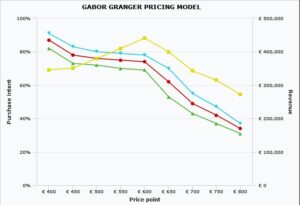Using Survival Analysis To Estimate Expected Product Lifetime
Summary
Survival analysis is an area of statistics that studies the (expected) length of time until some particular “event” occurs. We used differing types of survival analyses on a large dataset of survey responses to generate the estimated lifetime and ownership of various brown and white goods.

The Issue
Our client wished to estimate the average number of years after purchase that various consumer products broke down (or were no longer usable) from their own large dataset of survey responses containing the brand and age of the relevant devices. They believed that previous attempts to provide expected lifetime estimates from the data had been unreliable.
Our solution
For each product type, we used the well-respected Kaplan-Meier technique to provide initial estimates of expected lifetime of various brands in the dataset, merging brands whose survival curves did not differ sufficiently to avoid problems with small sample sizes. We then applied a different survival technique to the same dataset to give more confidence in our results and assist in a sensible maximum age of product to be analysed. Finally, we adjusted the KM mean to account for the chosen age cut-off, when appropriate.
The client was primarily interested in the average length of time (in years) before a particular product type broke down. However, with some product types, the proportion of machines that had broken down was very small compared to the number that was been replaced for non breakdown reasons. With these types, we used the same technique to estimate the average length of time the product was owned per brand, and thus provided a measure of length of ownership.
the result
We produced reliable estimates, with confidence bounds, of the expected length of time before various product types either broke down (lifetime), or were replaced (ownership). Our approach was novel, combining differing survival techniques, and flexible enough to be extended to other product types with only minor adjustments to any code.
Are you interested in reading more about our projects? Choose a category from the buttons below:
Other projects in this category:








